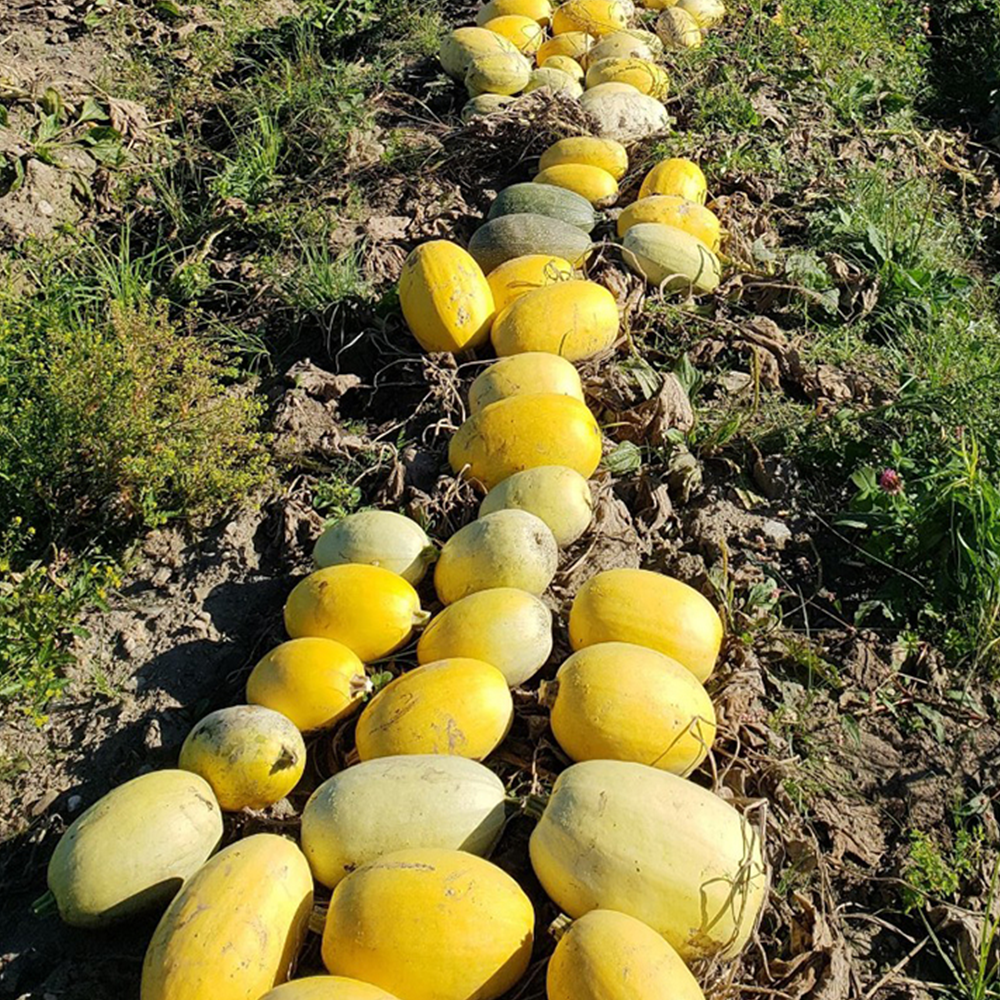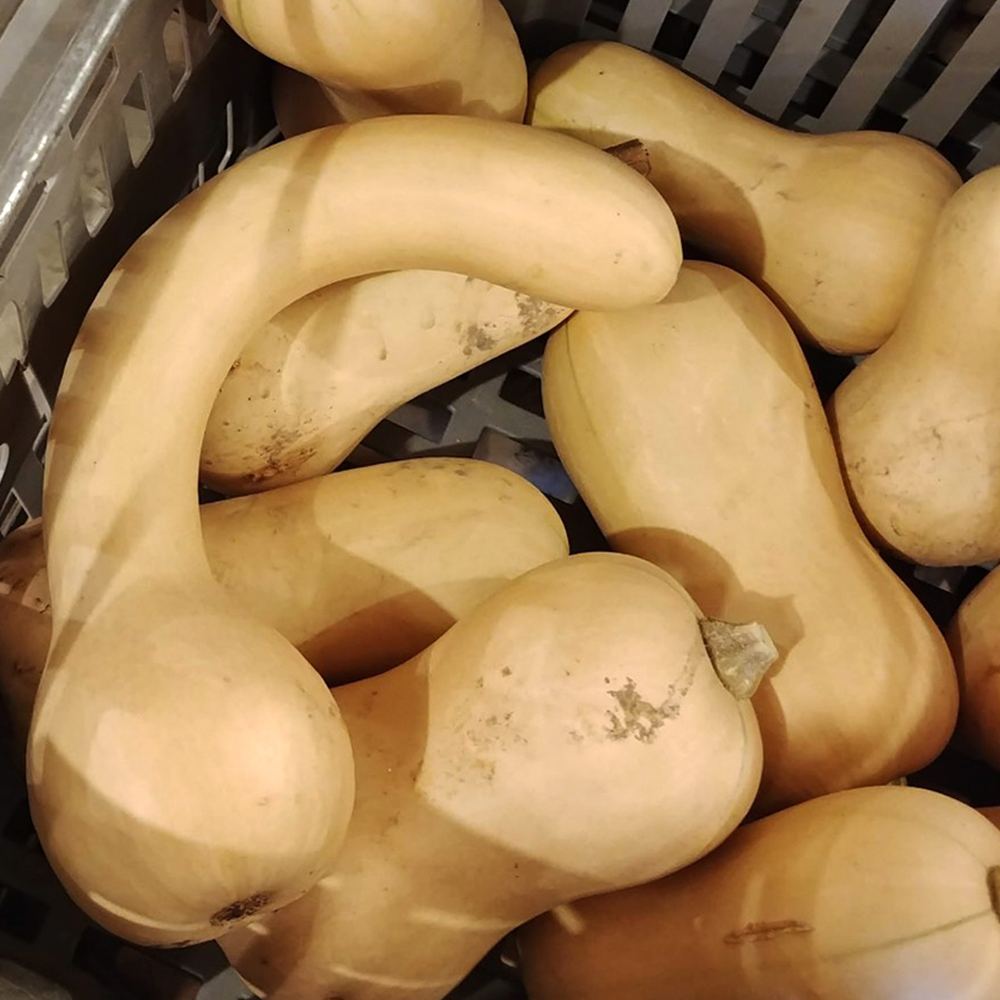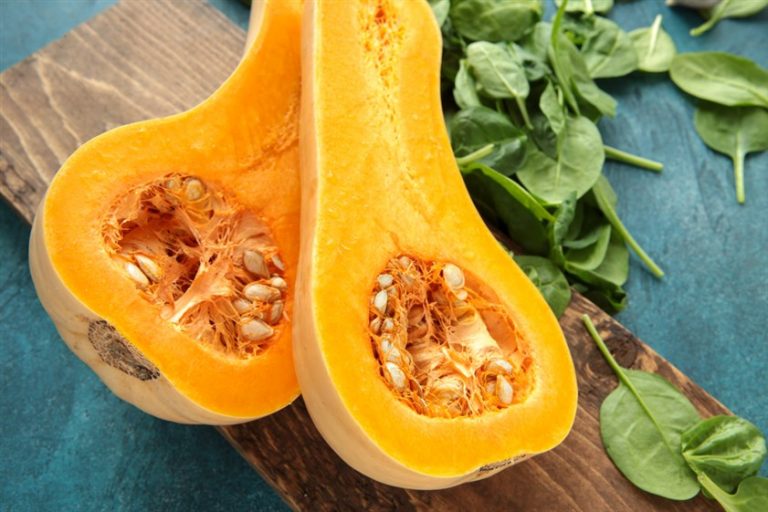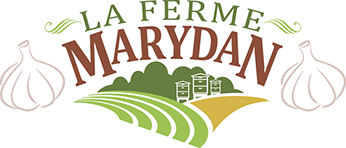
AT THE MARYDAN FARM

One baked serving provides only 15% of the daily requirement of vitamin C, but 350 mg of potassium, for only 30 calories. It also provides more fibre than summer squash: more than 2 g per serving. The filaments and seeds are rich in insoluble fiber, which helps prevent constipation, while the flesh contains soluble fiber, which lowers cholesterol.
Winter squash can be stored for several months in a cool, dark place. It should not be stored in the refrigerator: with the ambient humidity, it spoils more quickly. To preserve its mineral and vitamin richness, it is best cooked in the oven or steamed. You can add herbs and a little butter or margarine, stuff it or put it in breads, soups and stews. It can replace pumpkin in pies.
The seeds, dried and baked, make a snack rich in fiber, iron, potassium, zinc and other minerals; as well as protein, beta-carotene and B vitamins.
We grow the following varieties: Butternut (Doubeurre) – Spaghetti – Buttercup – Pepper – Delicata – Angel-Hair – Winter Sweet – Cha Cha – Sunshine – Red Kuri – Blue Ballet – Turban Turc – Honeynut.
Winter squash: As we specialize in long-term vegetable storage and supply, we have to move towards a long-life product.
It was in 2018 that we incorporated winter squash into our crop. The last 3 years we have done several tests, trials and errors, we can say that we have mastered this culture well which will allow us to cultivate more. In 2021, we integrated multiple varieties, these are 10 varieties out of 10,000 plants that we put in the greenhouse on May 1 and replanted in the field at the beginning of June.



Throughout the fall, grocery stores, greengrocers and public markets are overflowing with winter squash of all kinds. Since they keep well, we have several months to put them on the menu in a varied way!
Picked when ripe, winter squash has tough skin and large seeds; it is bulkier, darker and richer in nutrients than the summer one. Pepper and musk varieties are rich in beta-carotene, but their content varies depending on the color of the flesh. A 150g serving of acorn squash provides almost 100% of the daily vitamin A requirement; spaghetti squash yields less.
